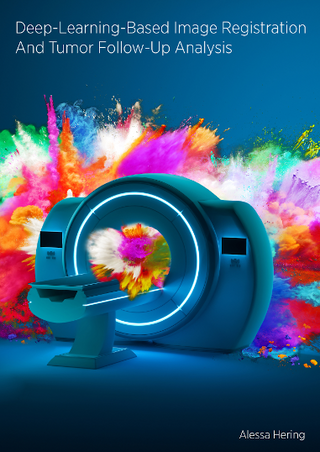Deep Learning-Based Image Registration And Tumor Follow-Up Analysis

On Monday October 10th at 12.30h, Alessa Hering has defended her PhD thesis on Deep Learning-Based Image Registration And Tumor Follow-Up Analysis. She obtained the degree of doctor and we organized a two day symposium on the future of medical imaging AI.
Her thesis is focused on the development of deep-learning based image registration approaches and on efficient tumor follow-up analysis.
Chapter 2 describes a method for a memory-efficient weakly-supervised deep-learning model for multi-modal image registration. The method combines three 2D networks into a 2.5D registration network.
Chapter 3 presents a multilevel approach for deep learning-based image registration.
Chapter 4 describes a method that incorporates multiple anatomical constraints as anatomical priors into the registration network applied to CT lung registration.
Chapter 5 presents the results of the Learn2Reg challenge and compares several conventional and deep-learning-based registration methods.
Chapter 6 describes a pipeline that automates the segmentation and measurement of matching lesions, given a point annotation in the baseline lesion. The pipeline is based on a registration approach to locate corresponding image regions and a convolutional neural network to segment the lesion in the follow-up image.
Chapter 7 presents the reader study, which investigates whether the assessment time for follow-up lesion segmentations is reduced by AI-assisted workflow while maintaining the same quality of segmentations.
← Back to overview